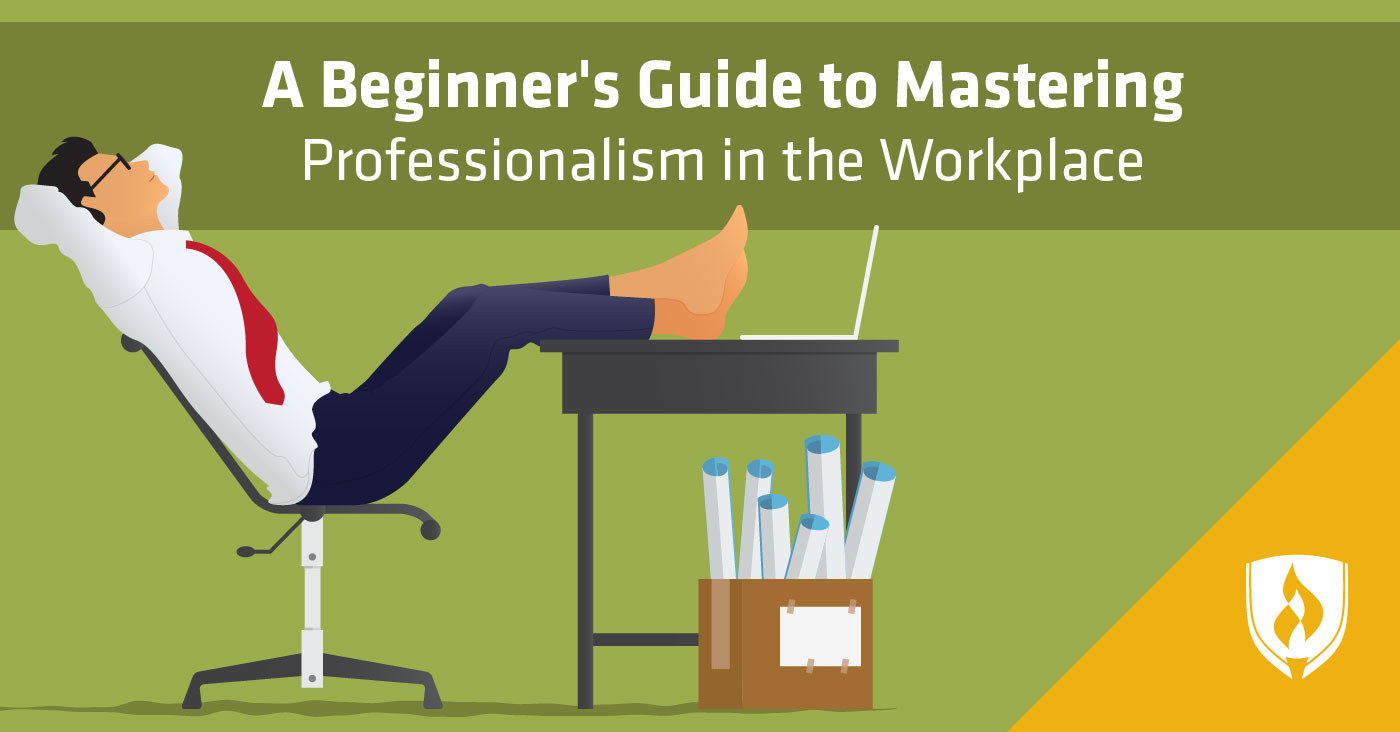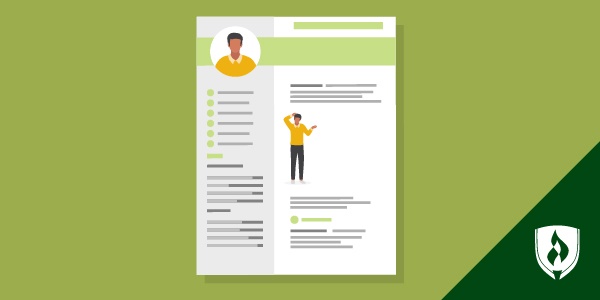
Think back to your first job. Was it babysitting your neighbor’s kids? Did you work at the local fast-food restaurant during high school? While you earned money during your stints at those jobs, you likely did not have to interview in formal dress to earn your position.
Now that you are looking for a job you can turn into your career, you’re starting to wonder what’s expected. What is appropriate workplace behavior? What should you do on your first day to make a good impression? What can you do to stand out and rise through the ranks—or at the very least to not attract negative attention?
Everyone has to start somewhere, and it’s natural to be nervous about beginning a serious job. While it’s true the norms and standards for workplaces can vary, some aspects of professionalism are universal. We asked professionals from a variety of industries to share some of their foundational tips for professionalism in any workplace.
8 Tips to help you improve your professional manner
Everyone wants to hit the ground running when they start a new job—the following advice will ensure you look and act the part.
1. Dress to impress
While this one may seem obvious, it can be hard knowing what the right dress code is for a new job. Art Gelwicks, executive consultant at The Idea Pump, suggests a good rule of thumb is to dress one “level” better than what’s expected. “Don’t overdress, but remember for the first few months, every impression you make will be a first impression,” Gelwicks says.
And although many companies are beginning to veer away from traditional business attire, it’s always best to ask beforehand to make sure you are up-to-date on expectations.
Autumn Gray, digital marketing specialist at Goodmanson Construction, recommends asking your hiring manager what the company dress code is before your first day. “You’re already the new kid on the block, so you don’t want to dress above and beyond your coworkers.”
This can be a bit of a fine line to walk. If the dress code is casual, you probably don’t want to come in wearing a suit and tie. However, it’s always better to ask and err on the side of more formal attire your first few days until you get a feel for the office—the worst case is you may get a funny smile or two as your coworkers think back to the outfits they showed up to work in on their first few days.
2. Write things down
Your first day at your new job will likely be a whirl of faces and information. To help you remember information, be sure to write things down.
“Always bring a notebook and pen to every meeting with anyone—especially your superiors—no matter how small or quick you think it might be,” says Jennifer Schwarzkopf, founder and creative director of Estelle. “If you don’t take notes, it conveys that you don’t deem the conversation as valuable, and are clearly unprepared for the expectations or follow-up.”
Don’t be afraid to ask what your next steps are or what they need from you—having a running list of things to follow-up on or do will keep you organized.
3. Watch what you say
There’s nothing wrong with being friends with your coworkers; it can make for a better work environment overall. But always be mindful of what you say during work hours.
Meredith McKamey, owner of The Raw Spa, says the most important part of being professional is knowing when to keep your opinions and thoughts to yourself. That means no complaining about your boss, not gossiping with coworkers at the watercooler, keeping your personal life out of the workplace and not shouting your political and religious views everywhere.
“It’s easy to choose the right clothes and set an alarm clock. But keeping yourself from saying ‘That’s not fair!’ when your boss gets down on you? That’s going to take some practice,” McKamey says.
4. Proofread your emails
Even if you are writing a casual email to a coworker, it’s important to always double check your written work. “Writing clear, grammatically correct English and being careful about promptly responding is a rare soft skill that every graduate should learn,” says Gil Gildner, co-founder of Discosloth.
Being professional in your communication is essential. Having an email riddled with typos, slang and emoticons can damage your reputation and discredit you as a professional. Some companies may have more casual communication tools such as Slack, but it is still important to present yourself as a professional there, as well. Take the time to pause and read over what you’ve written—even the best writers make plenty of errors in their rush to get their thoughts written out.
5. Come up with solutions
It’s only natural that after you settle in to a position, you will encounter different problems. Your first instinct may be to run to your manager and ask, “What do I do?” However, understand that your coworkers and manager are busy. Taking the time to think through problems and come up with solutions will show your critical-thinking skills.
“Offer solutions and not complaints. There’s nothing less professional that being the one that stirs the pot and causes trouble. Be the problem solver, not the problem maker,” says Gina Folk, of Folk Enterprises.
Even if you’re not sure what the best solution to a problem is, taking the time to compose your thoughts about where you’ve looked for answers and proposing potential options is almost always a better look than immediately asking for help.
6. Be punctual
This may also seem like a given but be on time for all aspects of the job. Arrive early and stay late if necessary; going that extra mile shows your dedication and gives you the opportunity to meet your coworkers and be involved.
Be on time for meetings, too. “People are busy at work. Showing up late to a meeting expresses disrespect to other’s time and is one of my biggest pet peeves in workplace professionalism,” says Levi Olmstead, Community Manager at G2 Crowd.
7. Be polite
Many of your co-workers at your new job will understand how nerve-wracking beginning a new job can be—they all had a first day, too. However, don’t let your nerves get the best of you and stop you from being friendly and approachable.
“Find a way to remember names and position titles as you go. Shake hands and look people in the eye,” says Lisa Sansom, organizational and leadership development coach at LVS Consulting.
By being polite, receptive and respectful, you can make a good first impression that will last.
8. Take initiative
The work doesn’t stop once you are hired. Proving yourself worthy of the position from your first day forward can be a way to establish yourself in your company.
Deborah Sweeney, CEO of MyCorporation, suggests coming to meetings prepared. Spend time researching and go to meetings with ideas of your own. In meetings, try to participate, even if it’s to ask questions. Speaking up and showing your interest in the work will help you establish yourself as a hard worker and vital member of the team.
Ask how you can help and find ways to take on additional work when appropriate. But remember to keep it within reason—overloading yourself and failing to meet deadlines doesn’t help or impress anyone.
Why is professionalism important?
Mastering professionalism in the workplace is critical for anyone hoping to sustain a long and successful career. Acting, dressing and communicating professionally helps your employer, coworkers and clients view you as a trustworthy and hardworking individual. Not acting professionally can damage your reputation and cause people to view you as sloppy and unprepared—so start your career on the right foot.
Being a professional isn’t hard, but it can take time to cultivate the wisdom and foresight to master, especially when you’ve never been exposed to a formal workplace environment. Going to college can help prepare you for the professional world, as well as hone other vital workplace skills. But professionalism isn’t the only soft skill you’ll need to succeed in your career.
One of the most important skills of all is the ability to think critically. Learn some techniques and strategies for honing this skills in our article, “6 Critical-Thinking Skills You Need to Master Now.”




